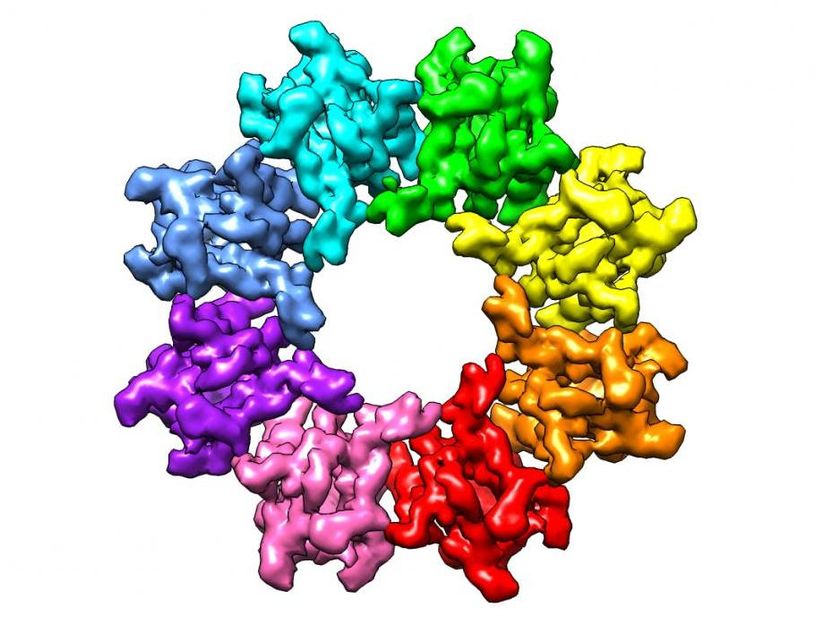Merck announces 2016 recipients of € 1 Million grant for Multiple Sclerosis Innovation
Four research grants awarded out of 260 proposals from 45 countries
Merck, a leading science and technology company, today announced recipients of the fourth annual Grant for multiple sclerosis Innovation (GMSI) during a symposium at the 32nd Congress of the European Committee for Treatment and Research in Multiple Sclerosis (ECTRIMS) in London.
This year, 260 proposals from 45 countries were submitted, representing innovative research projects taking place across the globe. Four research teams from the United Kingdom, Spain, Canada, Israel, Germany and Qatar were selected to share in the € 1 million grant to support their research:
- Nuclear magnetic resonance spectroscopy analysis of plasma; a novel, highly sensitive method for monitoring the development and predicting progression in multiple sclerosis: Professor Daniel Anthony, Department of Pharmacology, University of Oxford, Oxford, United Kingdom.
- Raman Spectroscopy in Multiple Sclerosis: Dr. Elena Martinez de Lapiscina, IDIBAPS-Hospital Clinic, Barcelona, Spain.
- Cell-type specific methylation patterns in circulating DNA: Towards the clinical application of an innovative blood-based biomarker for oligodendrocyte and neuronal damage in multiple sclerosis: Professor Yuval Dor, Department of Developmental Biology and Cancer Research, The Institute for Medical Research Israel-Canada, Jerusalem, Israel; Dr. Adi Vaknin, Laboratory of Neuroimmunology, Department of Neurology, Hadassah Hebrew University Medical Center, Jerusalem, Israel; and Dr. Klemens Ruprecht, Department of Neurology, Charité – Universitätsmedizin Berlin, Germany.
- Corneal Confocal Microscopy: A Rapid Non-invasive Surrogate Endpoint for Axonal Loss and Repair in Multiple Sclerosis: Professor Rayaz Malik and Dr. Ioannis Petropolous, Weill Cornell Medicine-Qatar of Cornell University, Qatar Foundation, Education City, Doha, Qatar.
“Merck is committed to advancing care for patients living with multiple sclerosis through internal innovation and drug development, which is strategically complemented by external innovation from our Grant for Multiple Sclerosis Innovation,” said Steven Hildemann, Chief Medical Officer, and head of Global Medical Affairs and Global Drug Safety at the biopharmaceutical business of Merck. “This year’s grant recipients will study new ways to detect and monitor MS and predict disease progression. These projects once again highlight the leading-edge research being conducted by GMSI teams aimed at treating MS, repairing damage caused by the disease and finding new discoveries that could one day aid in preventing it.”
The GMSI was launched in October 2012 with the aim of improving the understanding of multiple sclerosis (MS) for the ultimate benefit of those living with the disease. Previous recipients have studied molecular markers of MS, novel magnetic resonance imaging (MRI) and positron emission tomography (PET) imaging and analysis techniques to detect and monitor the disease, and methods to reduce and repair nerve damage caused by inflammation in patients with MS.
The awards symposium was chaired by Professor David Bates, Emeritus Professor of Clinical Neurology, Royal Victoria Infirmary, UK, and a member of the GMSI Scientific Committee. During the symposium, Merck also announced the call for proposals for the 2017 GMSI. Up to €1,000,000 will be awarded to fund innovative research in MS, in topics that could include:
- MS pathogenesis
- Prediction of MS subtypes
- Predictive markers of treatment response
- Potential new treatments for MS
- Innovative patient support programmes, mobile health devices or patient-reported ou
Most read news
Topics
Organizations
Other news from the department science

Get the analytics and lab tech industry in your inbox
By submitting this form you agree that LUMITOS AG will send you the newsletter(s) selected above by email. Your data will not be passed on to third parties. Your data will be stored and processed in accordance with our data protection regulations. LUMITOS may contact you by email for the purpose of advertising or market and opinion surveys. You can revoke your consent at any time without giving reasons to LUMITOS AG, Ernst-Augustin-Str. 2, 12489 Berlin, Germany or by e-mail at revoke@lumitos.com with effect for the future. In addition, each email contains a link to unsubscribe from the corresponding newsletter.
More news from our other portals
See the theme worlds for related content
Topic world Fluorescence microscopy
Fluorescence microscopy has revolutionized life sciences, biotechnology and pharmaceuticals. With its ability to visualize specific molecules and structures in cells and tissues through fluorescent markers, it offers unique insights at the molecular and cellular level. With its high sensitivity and resolution, fluorescence microscopy facilitates the understanding of complex biological processes and drives innovation in therapy and diagnostics.

Topic world Fluorescence microscopy
Fluorescence microscopy has revolutionized life sciences, biotechnology and pharmaceuticals. With its ability to visualize specific molecules and structures in cells and tissues through fluorescent markers, it offers unique insights at the molecular and cellular level. With its high sensitivity and resolution, fluorescence microscopy facilitates the understanding of complex biological processes and drives innovation in therapy and diagnostics.
Topic World Spectroscopy
Investigation with spectroscopy gives us unique insights into the composition and structure of materials. From UV-Vis spectroscopy to infrared and Raman spectroscopy to fluorescence and atomic absorption spectroscopy, spectroscopy offers us a wide range of analytical techniques to precisely characterize substances. Immerse yourself in the fascinating world of spectroscopy!

Topic World Spectroscopy
Investigation with spectroscopy gives us unique insights into the composition and structure of materials. From UV-Vis spectroscopy to infrared and Raman spectroscopy to fluorescence and atomic absorption spectroscopy, spectroscopy offers us a wide range of analytical techniques to precisely characterize substances. Immerse yourself in the fascinating world of spectroscopy!
Topic world Diagnostics
Diagnostics is at the heart of modern medicine and forms a crucial interface between research and patient care in the biotech and pharmaceutical industries. It not only enables early detection and monitoring of disease, but also plays a central role in individualized medicine by enabling targeted therapies based on an individual's genetic and molecular signature.

Topic world Diagnostics
Diagnostics is at the heart of modern medicine and forms a crucial interface between research and patient care in the biotech and pharmaceutical industries. It not only enables early detection and monitoring of disease, but also plays a central role in individualized medicine by enabling targeted therapies based on an individual's genetic and molecular signature.

























































